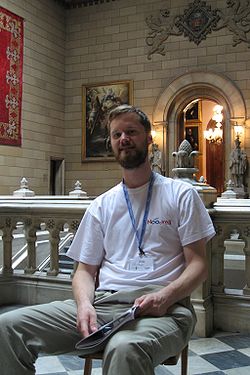Copyright assignment in the wake of myOracle


(Picture from Wikipedia.)
In yesterday's piece the tie-dyed t-shirts essentially had a form of copyright assigned to the co-op which was eventually sold to WalMart. In software terms copyright assignment has always been controversial, and as Meeks writes it is going to become more so in the wake of the mySQL buy-out.
If you are writing as an employee of a corporate sponsor, whether that's Novell or ZDNet, this assignment is not an issue. The rights to your work will follow the Golden Rule -- he who has the gold makes the rules.
In the case of a community project it's more complex. Meeks writes that the reputation of the sponsoring organization matters a lot, and that even the Free Software Foundation had its besmirched by the controversy over GPLv3.
The problem is that things change. He offers the example of Sun trying to monetize Open Office early this decade. The process leading to Oracle's acquisition of mySQL is another.
Even the Linux user interface split, between KDE and GNOME, which newcomers to the space find impossible to understand, began with copyright assignment. KDE was based on non-free Qt, and while that software eventually went to the LGPLv2 it created a "vast amount of acrimony, duplication and wasteage that continues to this day."
There are plenty of folks who respond to talkbacks here with disdain for community contributions. But such contributions go deeper than code. Anyone who reports bugs, or checks out beta software, is contributing to a project, even if no copyright assignment is involved.
In the end, Meeks writes, we're talking about a trust process. Even asking for trust can damage this process, as noted in the research paper The Best of Strangers. Companies that demand copyright assignment attract fewer contributors, but managing a complex copyright regime, with rights held by outsiders, can be a nightmare.
Meeks ends his paper with a list of recommendations that add up to one word -- beware. And he ends with a warning:
Civil law is there to help prevent the injustice of having your love and support sold out. A refusal to consider protecting the rights of the weaker party tends to confirm an intent to exploit. This of course applies as equally to trademark as to copyright ownership.
This may be one of the most important papers on open source since The Cathedral and the Bazaar. It is well worth your time to read it in full.